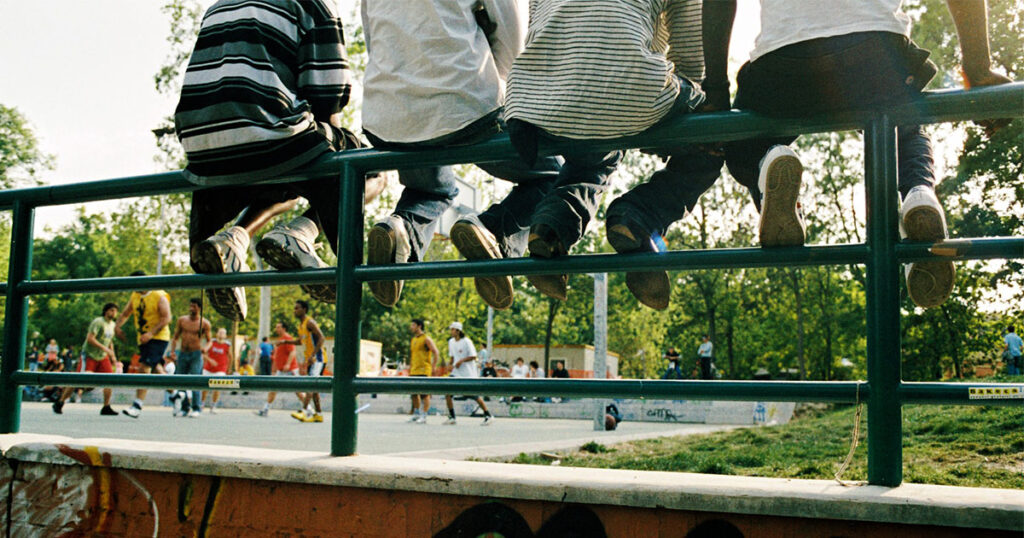
In the popular belief, ghosts are a selecting tribe, avoiding millions, speaking to one.
—Ralph Waldo Emerson, “Demonology,” North American Review, 1877
Let dew collect on the hoe abandoned
in long grass. Let the stars appear
and the moon disclose her silver horn.
Let the fox go back to its sandy den.
Let the wind die down. Let the shed
go black inside. Let evening come.
To the bottle in the ditch, to the scoop
in the oats, to air in the lung
let evening come.
—Jane Kenyon, “Let Evening Come,” Otherwise: New and Selected Poems, 1996
I would rather feel your spine than your skull, whoever you are.
—Herman Melville, Moby-Dick, 1851
Babel towers of chimneys, wanting half their height; temporary wooden houses and enclosures, in the most unlikely situations; carcases of ragged tenements, and fragments of unfinished walls and arches, and piles of scaffolding, and wildernesses of bricks, and giant forms of cranes, and tripods straddling above nothing. There were a hundred thousand shapes and substances of incompleteness, wildly mingled out of their places, upside down, burrowing in the earth, aspiring in the air, mouldering in the water, and unintelligible as any dream. …
In short, the yet unfinished and unopened Railroad was in progress; and from the very core of all this dire disorder, trailed smoothly away, upon its mighty course of civilisation and improvement.
—Charles Dickens, Dombey and Son, 1846–48
For this is the theme that underlies all table manners: we may be slicing and chewing; we may have killed or sacrificed to supply our feast; we may be attending to the most “animal” of our needs; but we do so with control, order and regularity. … We do not get the guests mixed up with the dishes. For the point is that we so easily could. At table we are both armed and vulnerable; we are at such very close quarters.
—Margaret Visser, The Rituals of Dinner, 1991
When the spirits are low, when the day appears dark, when work becomes monotonous, when hope hardly seems worth having, just mount a bicycle and go out for a spin down the road, without thought on anything but the ride you are taking.
—Arthur Conan Doyle, Scientific American, 1896
The printing press could disseminate, but it could not retrieve.
—Daniel J. Boorstin, The Discoverers, 1983
Ode to
your essence making up 73% of the cosmos,
the power of 310 Angola aircraft in a single heel,
to each uptown caressing a possible president,
to a force beyond force = mass x acceleration.
Fast lil ma working behind the cash register.
On the way home she passes home.
Ode to what you gave her, what you give her,
wherever she’s going.
—Bryan Byrdlong, “Ode to Black Air Forces,” 2023
A great chapter of the history of the world is written in the chalk. … The man who should know the true history of the bit of chalk which every carpenter carries about in his breeches pocket, though ignorant of all other history, is likely, if he will think his knowledge out to its ultimate results, to have a truer and therefore a better conception of this wonderful universe, and of man’s relation to it, than the most learned student who is deep-read in the records of humanity and ignorant of those of Nature.
—Thomas Henry Huxley, “On a Piece of Chalk,” lecture to the working men of Norwich, 1868
I will be damned if I propose to be at the beck and call of every itinerant scoundrel who has two cents to invest in a postage stamp.
—William Faulkner, on resigning as University of Mississippi postmaster, 1924
Nature repairs her ravages—but not all. The uptorn trees are not rooted again—the parted hills are left scarred; if there is a new growth, the trees are not the same as the old, and the hills underneath their green vesture bear the marks of the past rending. To the eyes that have dwelt on the past, there is no thorough repair.
—George Eliot, The Mill on the Floss, 1860
I will die in Paris, on a rainy day,
on some day I can already remember.
I will die in Paris—and I don’t step aside—
perhaps on a Thursday, as today is Thursday, in
autumn …
These are the witnesses:
the Thursdays, and the bones of my arms,
the solitude, and the rain, and the roads …
—César Vallejo (tr. by Robert Bly), “Black Stone Lying on a White Stone,” Neruda & Vallejo: Selected Poems, 1971
To microbes, every host is effectively an island—a world surrounded by void. My hand, reaching out and stroking Baba at the San Diego Zoo, is like a raft, conveying species from a human-shaped island to a pangolin-shaped one. An adult being ravaged by cholera is like Guam being invaded by foreign snakes. No man is an island? Not so: we’re all islands from a bacterium’s point of view.
—Ed Yong, I Contain Multitudes: The Microbes Within Us and a Grander View of Life, 2016
I am the cat who walks alone, and to me all supermarkets are alike.
—William S. Burroughs, The Cat Inside, 1986
No, give me my in-tray,
My loaf-haired secretary,
My shall-I-keep-the-call-in-Sir:
What else can I answer,
When the lights come on at four
At the end of another year?
Give me your arm, old toad;
Help me down Cemetery Road.
—Philip Larkin, “Toads Revisited,” The Whitsun Weddings, 1964
Ham held the same rating as the basic black dress. If you had a ham in the meat house any situation could be faced.
—Edna Lewis, The Taste of Country Cooking, 1976

